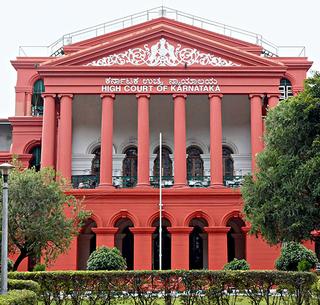The Karnataka government has issued a directive requiring all establishments dealing with foreigners, including hotels, hostels, guesthouses, and service providers, to register with the Foreigners Regional Registration Office (FRRO). Officials emphasized that the move comes in response to growing concerns about security, tracking, and regulatory oversight. With the state attracting a large number of international students, tourists, and professionals, authorities believe this step is necessary to ensure better monitoring. Around 5,000 establishments across the state are expected to come under the ambit of this order, which will involve online registration and periodic compliance checks.
The Home Department noted that several establishments have failed to maintain accurate records of foreign nationals, causing gaps in data during verification drives. This has raised concerns about undocumented stays and illegal activities. By mandating registration with the FRRO, the government hopes to maintain a centralized database of foreign visitors and residents. Hotels and service providers will be required to submit details of foreign guests within 24 hours of their stay. The regulation is aimed at curbing misuse of facilities and strengthening ties with international communities by ensuring safety and transparency. Authorities also stated that the process will be streamlined online to minimize inconvenience to businesses.
Stakeholders, however, have expressed mixed responses to the announcement. While some believe it will strengthen safety and align Karnataka with international norms, others fear that it may create bureaucratic hurdles for small-scale establishments. Hoteliers have raised concerns about the possibility of delays, penalties, or misinterpretation of rules that could affect customer satisfaction. Despite this, the government has assured that training workshops and awareness drives will be conducted to help establishments adapt. Officials believe the order will also boost Karnataka’s global reputation as a secure and well-regulated destination for travelers, students, and investors, balancing hospitality with accountability.
Concerns of Businesses and Stakeholders
Business owners, particularly those running smaller hotels and homestays, argue that the order may increase administrative burdens. Many establishments operate on thin margins and do not have the resources to employ staff dedicated to compliance procedures. Owners fear that delays or errors in reporting may attract penalties, affecting their reputation and profitability. Hospitality associations are preparing to petition the government for relaxation of certain provisions, especially for establishments in rural or remote areas that may face connectivity issues. They stress that compliance should not be punitive but collaborative, ensuring that businesses are supported through the transition.
On the other hand, larger hotels and corporate establishments see this as an opportunity to bring uniformity in guest management systems. By integrating with the FRRO’s database, they argue, Karnataka can ensure better coordination with embassies, universities, and international organizations. This will help in building trust with foreign nationals and promoting the state as a global hub for education, tourism, and investment. Stakeholders also believe that compliance could attract more long-term benefits, such as international accreditation and recognition for following global hospitality norms. The government has hinted at possible incentives, such as fast-track clearances and tourism promotions, for establishments adhering to the order.
The new directive has triggered conversations within the tourism industry, as Karnataka heavily relies on international visitors for its economic growth. Tour operators and travel agents argue that foreign travelers often prefer smaller guesthouses and homestays for cultural experiences. If these establishments face excessive paperwork and penalties, it may discourage them from welcoming foreigners altogether. This could shift the demand towards larger hotel chains, thereby affecting the balance of the market. Experts warn that without proper support for smaller establishments, the regulation could unintentionally limit tourist options and reduce cultural immersion experiences for international guests.
Civil society groups and international student organizations have also weighed in on the matter, stating that transparency is crucial for protecting foreigners from exploitation. In the past, there have been instances of overcharging, misrepresentation, and even safety concerns in unregulated accommodations. Registration with the FRRO is expected to create a safer environment by providing authorities with up-to-date information. Student associations from universities in Bengaluru and Mysuru welcomed the move, saying it will give them greater security. However, they cautioned that any misuse of personal data must be avoided, as foreign nationals are often sensitive about privacy and legal documentation.
The order also highlights the state government’s increasing emphasis on technology-driven governance. By creating a digital platform for establishments to register and upload guest details, Karnataka aims to minimize paperwork and streamline verification. Authorities have promised that the system will be user-friendly and available in multiple languages. Training modules and helpdesks will be set up to guide business owners. Despite these assurances, skepticism remains, as past attempts at digital governance in the hospitality sector faced technical glitches and slow grievance redressal. The success of the FRRO registration will largely depend on the efficiency of the technology employed.
From a law enforcement perspective, the directive is being hailed as a preventive measure against illegal stays, undocumented workers, and potential criminal activities involving foreigners. Police officers point out that a lack of reliable guest records has often delayed investigations in the past. By mandating FRRO registration, authorities will have a centralized source of verified information. This could significantly improve the speed and accuracy of law enforcement activities. Furthermore, the move is expected to strengthen India’s image internationally by showing that Karnataka prioritizes the security of both visitors and residents. Officials stress that compliance is not just about rules, but about collective safety.
Economic analysts suggest that while the order may cause short-term disruption, it could lead to long-term stability in the hospitality industry. By weeding out unregistered establishments, the regulation ensures fair competition among players. It could also attract more foreign investment into Karnataka’s tourism sector, as investors generally favor regions with strong regulatory frameworks. Analysts argue that a well-monitored market benefits everyone, including travelers who can be assured of safe and legal accommodations. However, they warn that the government must strike a balance, ensuring the law is not overly restrictive to the point of discouraging new entrants into the hospitality market.
Human rights activists, however, have raised a note of caution, stating that foreign nationals may face increased surveillance and harassment if the system is not managed sensitively. They argue that excessive monitoring could create an atmosphere of mistrust, making visitors feel unwelcome. Some activists worry that smaller establishments may also misuse the system to discriminate against certain nationalities or communities. The government has responded by emphasizing that the database will be confidential and strictly used for administrative purposes. Still, rights groups are calling for strong safeguards to prevent misuse and to ensure foreign visitors feel comfortable during their stay.
The directive may also have implications for Karnataka’s educational institutions, which host thousands of foreign students every year. Universities and hostels will be required to strictly adhere to the FRRO guidelines, keeping track of foreign students’ residential details. While this may improve safety and monitoring, it could also place additional responsibilities on academic institutions. Some colleges worry that delays in compliance could create bureaucratic hurdles for student admissions. On the positive side, adherence to global standards of record-keeping may boost the credibility of Karnataka’s universities, making them more attractive to international students seeking safe study environments.

Local communities, especially in tourism-heavy districts like Coorg and Chikkamagaluru, are divided on the issue. Homestay operators, who rely on foreign tourists for income, feel the directive might dissuade guests seeking informal cultural exchanges. They argue that hospitality in rural Karnataka thrives on personal trust and community bonds, which may not fit easily into bureaucratic frameworks. On the other hand, some residents welcome the regulation, pointing to cases where foreigners have overstayed their visas or engaged in unauthorized activities. For them, stricter monitoring means greater accountability and a stronger sense of safety within their communities.
Government’s Roadmap Ahead
The state government has announced that the first phase of implementation will focus on Bengaluru, Mysuru, and Mangaluru, given their high influx of foreign visitors. A special task force will be deployed to assist establishments in registering with the FRRO and resolving technical challenges. Regular audits and feedback mechanisms will be introduced to ensure the system remains transparent and efficient. Officials claim that the move is not intended to harass businesses but to safeguard both citizens and foreigners residing in Karnataka. If successful, the model could later be extended to other states as a best practice for foreigner management.
Follow: Karnataka Government
Also read: Home | Channel 6 Network – Latest News, Breaking Updates: Politics, Business, Tech & More


